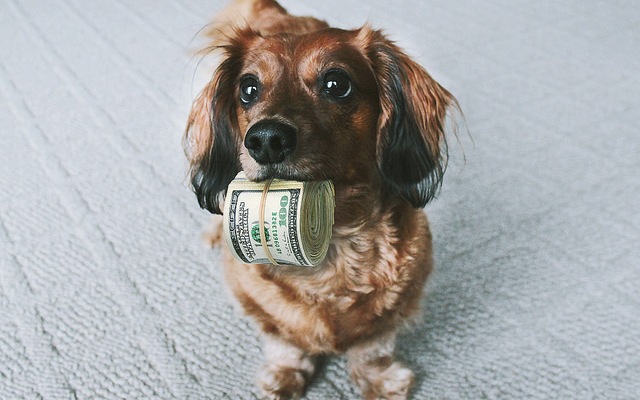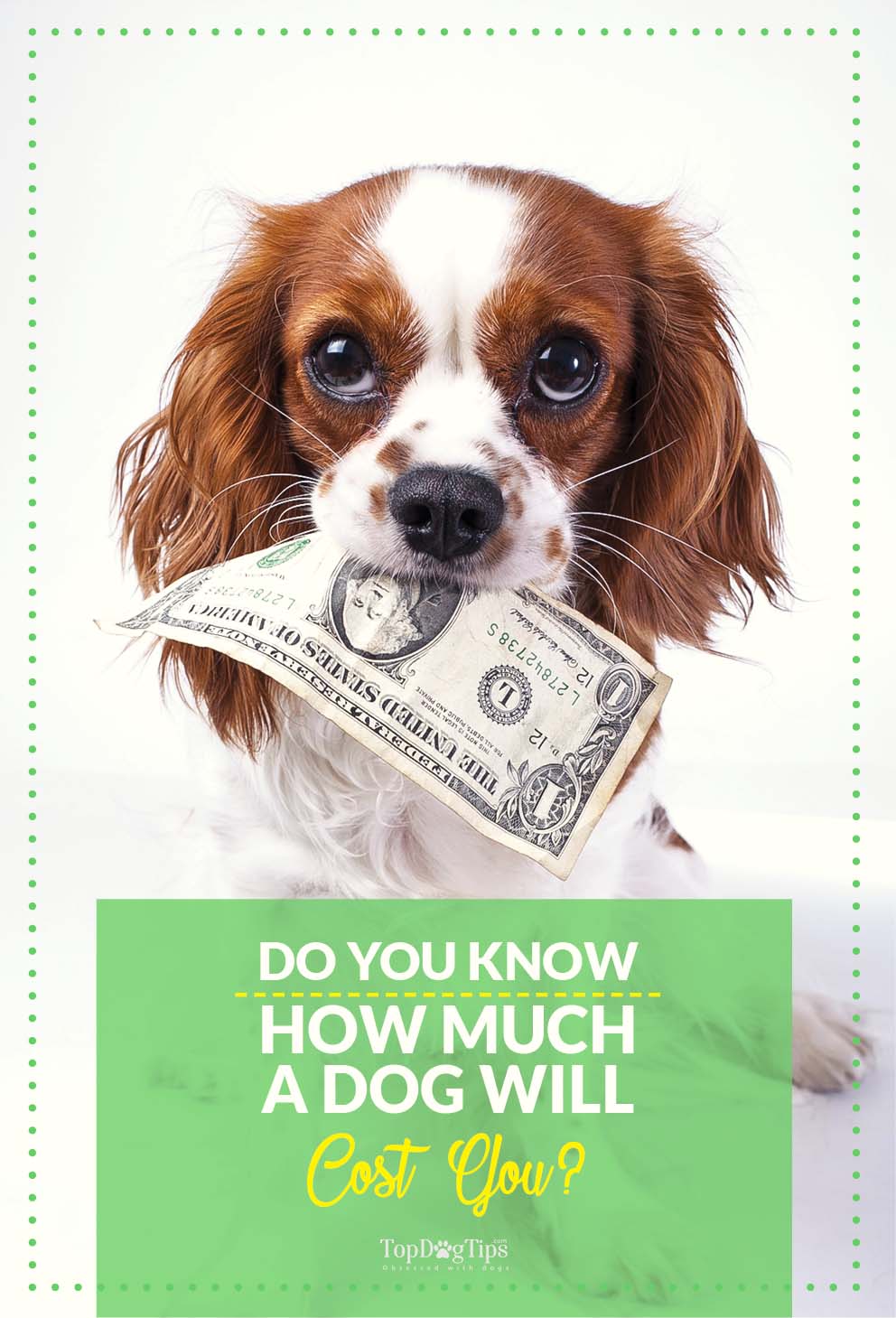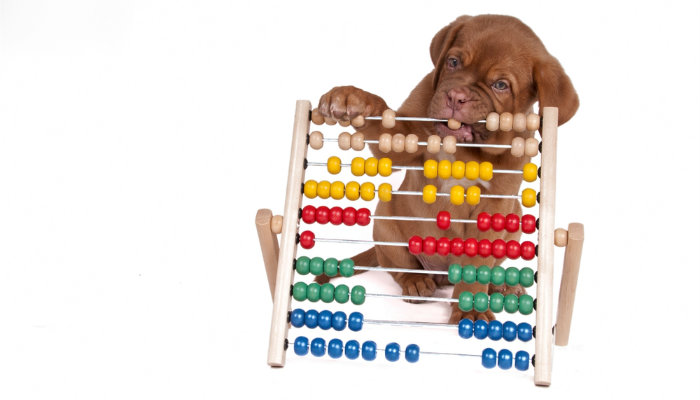Having a new puppy in the house is certainly forcing me to do a lot of research about training and behavior modification. It also spurred a great conversation with a friend of mine, and fellow dog lover, over the weekend. I thought it would make an interesting topic for my column this week.
My friend and her husband are thinking about adopting a puppy in the near future. They are wonderful people who would be great pet parents, and their lifestyle and schedule are flexible, making them great candidates for puppy adoption. They have a beautiful house with plenty of space and a large yard that would be perfect for an active pup.
So you can imagine my friend’s surprise when I told her that I don’t think her family is ready for a dog quite yet?
You see, I’ve been friends with this woman for many years and we talk about almost everything, including finances. I happen to know that this family, like most, struggles financially more often than not.
My friend is prepared for the initial cost of adopting a dog and to purchase all the basic necessities like dog food, a food and water bowl, a dog bed, chew toys and grooming supplies. However, I knew she wasn’t prepared for the hidden costs of dog ownership.
READ ALSO: How Much Does a Dog Cost? Budgeting Guide for Dog Owners

Before I get into this, here are a few articles on how to save money as a dog owner:
- 19 Tips on How to Save and Budget for Your Dog’s General Expenses
- 18 Tips on How to Save Money on Dog Care, Health, Vet Bills and Meds
- 48 Ways to Save Money on Dog Grooming, Training & Supplies
Now, I wanted to help spread the word about how much it costs to own a dog, and especially the types of costs that future pet owners usually overlook, because I don’t think many potential dog parents give this enough thought.
I also believe that hidden costs of owning a pet is one of the biggest reasons why dogs get abandoned or rehomed. The initial expense of a puppy is high, but many people don’t realize that a dog is not a one-time purchase; dogs are an ongoing investment.
Your new dog will need his booster shots, a laundry list of supplies, and of course plenty of dog food. Have you considered the one-time costs of spaying/neutering or dog training? And don’t think you’re finished after these things are paid for. Your dog is a financial commitment that will cost you tens of thousands of dollars during his life time.
I’m not trying to talk anyone out of adopting a dog. My aim here is to stress the importance of planning for the hidden costs of dog ownership.
According to ASPCA‘s statistics, the average initial cost of adopting a medium sized dog includes:
- Spaying/Neutering – $200
- Medical exam – $70
- Collar and leash – $30
- Crate – $95
- Carrying crate – $60
- Dog training – $110
This brings the total one-time cost of adoption to $565.
On top of that, pet parents should also add the cost of dog food, bowls, booster shots, a dog bed and the initial price of the adoption (which usually averages about $200 from most shelters and rescues).
Now you’re looking at about $1,000 to adopt a mixed breed or shelter dog.
If you are interested in purchasing a purebred dog, you’ll probably spend $1,000 just on the dog itself – possibly even more – and still need to invest in his or her medical care and initial necessary dog supplies.
After that, dog owners need to consider all dog health related routine costs that all canines will require.
RELATED: Pets on a Budget – Best Places to Find Cheap Dog Proucts
Your pooch will need vaccinations, routine checkups, flea and tick prevention, heart-worm prevention, dog food, and grooming tools. You may have thought I was crazy when I said that a dog will cost you tens of thousands of dollars in his lifetime, but you’re probably starting to understand that statement a little better now.
And we haven’t even covered all the hidden costs yet!
What are you going to do with your pet when you need to travel? Will you take him with you? Then you'll need to spend extra on his traveling supplies.
Will you board your dog at a kenneling facility? In that case, again, it will cost you some cash, and I bet you didn't enough about this yet. It will be too late to do the math after you adopt your pooch.
My friend hadn’t think of this either.
Are you going to need pet sitting or dog walking services? You better factor those expenses into your puppy's budget too. Even if you're not certain about this now, it's never a bad idea to plan for something like this just in case.
What about all the unexpected costs of raising a dog?
Imagine that your dog gets into a fight with a porcupine or he gets sprayed by a skunk. Oftentimes it will require a trip to the vet to remove those quills or a visit to professional dog groomers to remove the stink of a skunk. Emergency services are always more pricey, so don’t forget to add that extra cost as well. Better yet, have an emergency fund for your Fido.
No matter how much time and effort you put into selecting the best animal shelter or responsible breeder with the highest quality pedigreed dogs, you still may end up with a fur baby that requires a lot of medical treatment.
Dog cancer and diabetes in dogs are as common in the canine world as they are for humans. You may have a dog that suffers from early onset canine arthritis or hip dysplasia. Or, like our family, you may adopt a pet that will eventually need to take a prescription medication multiple times a day for the rest of his life.
RELATED: Caring For Your Dog on a Budget
When considering puppy adoption, you need to think about all the costs associated with caring for him throughout his entire life, not just the initial investment.
Senior dogs are typically more expensive than younger animals. They need dog supplements added to their diet, orthopedic dog beds, more regular veterinary care and additional pet supplies to help them in everyday life like pet stairs and ramps.
These unexpected dog related expenses can really add up, and if you cannot afford them, what will you do?
You certainly don’t need to be a millionaire to own a dog, but you do need to have a bit of savings set aside specifically for your furry family members. Without a savings cushion to help care for your companion animal, you’ll either need to surrender him to a shelter, rehome him with a friend or family member, or you’ll be forced to rack up a bunch of debt to get your pet the care he needs. None of these options are good for you or your dog.
What are your thoughts?
What unexpected expenses have you come across that you would like to warn other pet parents about? Have you found some great ways to stretch your pet budget?
I want to hear about them and so do other readers, so please share your advice in the comments below.
READ NEXT: Improving Quality of Life for Senior Dogs















